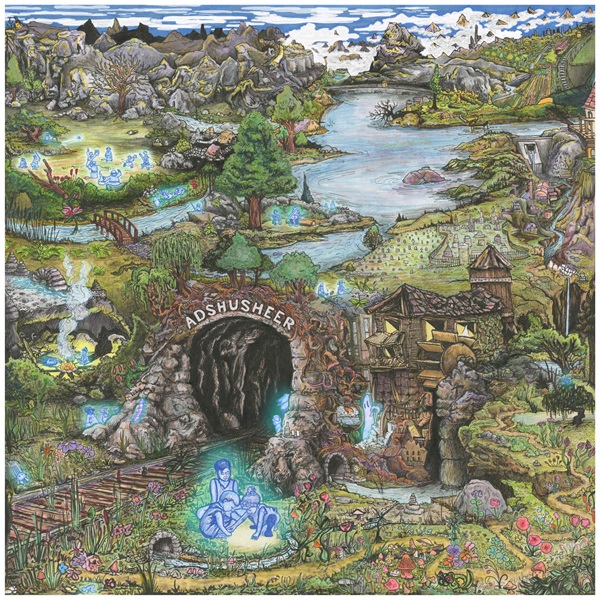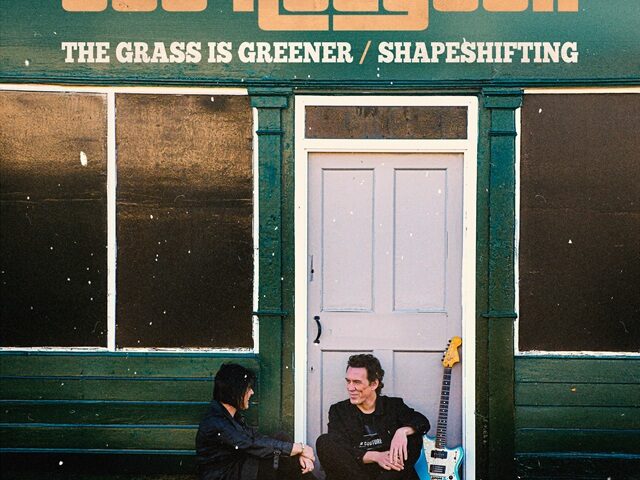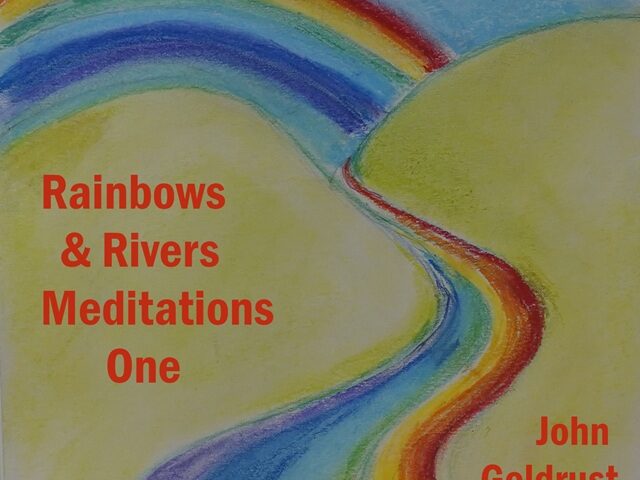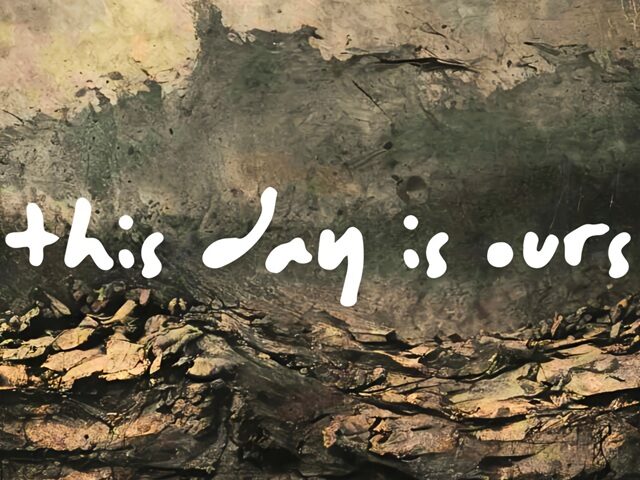
Post-folk trio The River Otters unveil a gorgeous sound throughout their new album Adshusheer, an instrumental release with atmospheric emphasis on the use of guitar (acoustic, national, and bass). Percussion and pump organ also appear, though the release’s gorgeous soundscapes are primarily driven by illuminating guitar lines.
Thematically, the release seizes on the power of child-like fascination, and the magic it can result in. Band leader Robinson Earle explains: “Thematically, it’s about the forest that surrounds my home and my initiation into fatherhood. I want my children to grow up in a magical world. I moved around a lot as a kid, and I want them to have strong roots. The title refers to a lost native village hidden somewhere in these woods.”
The opening title track is a showcase in the band’s gripping knack for structural development. Ample mystique is conveyed initially with a buzzing textural simmer in the background, as sporadic twangs further the palpable momentum. A quaintly stomping percussive emergence at mid-point kickstarts more expressive twanginess, with a rollicking engagement lending an ambient country engrossment, aesthetically. “Friar Tuck” follows with cohesive consistency, exuding a celebratory vibe in its retention of these warming guitar twangs. Adshusheer opens with an inviting warmness, courtesy of these two successes.
A more ominous intrigue takes hold on “The Factory.” Brooding guitar trickles cast a darkly entrancing spell alongside click-clacking percussion, opening up around the one-minute turn with a breezier disposition, as hints of jazzy guitar immersion consume. The shift between these lusher tones and more unsettling initial fervency is further emphasis of the project’s compelling tendency for tonal variety, all while maintaining a consistent mystique.
Although grim in its namesake, the ensuing “I Knew A Guy Who Died” struts a gentler guitar-led appeal, with a gorgeously melancholic and reflective chordal progression evident into the second minute and conclusion; there’s a reflective quality evident in its theme of meditating on “the first peer to pass.” “We Leave Tonight” invokes emotion with similarly thematic composure. The three-minute turn captivates as twangy guitars and thunderous distortion collide with beautiful, hypnotic precision; the audible representation of “the dark energies left behind by those who turn the earth,” grips firmly.
Suave acoustical contemplation traverses into a whimpering effect on the catching “Blues for John,” with brief flashes of rhythmic energy interspersing with lonesome guitar tones for a memorable output. “Come Again” follows with a continued thematic emphasis on life beyond the living; whereas “We Leave Tonight” lingers on the imprints left behind by those who have passed on, “Come Again” reminds of continued strength with each incarnation. “The Day She Told Me” continues further with its depiction of life’s highs, aptly touting a vibrant range of acoustical tones with caressing endearment.
Following the frolicking lightheartedness of “Lyra’s Mad Dance,” described as a “children’s folk dance,” the album concludes with the ravishing “Sleeping in the Forest.” An outdoors-y background, with cricket-chirping, complements chilly guitar tones — flowing with elegant precision. A hypnotic, spellbinding structural navigation persists on this moving finale, just as it does throughout the entirety of Adshusheer, an album abundant in memorable atmosphere and gently unfolding melodic beauty.





